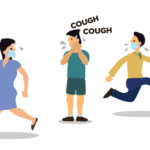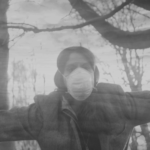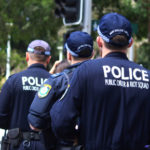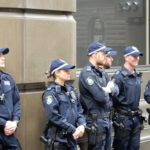Can Police Enter My Residence to Check Compliance With a Public Health Order?
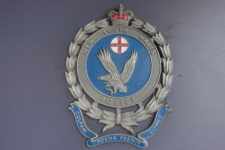
The outbreak of COVID-19 has led to unprecedented controls being placed on the Australian population, significantly restricting movement, association and gatherings.
State and federal parliaments have been shut down, the executive has taken over powers normally exercised by parliament and police have been handed control of the response – with little to no oversight from the courts or those who have been elected by the people.
The situation has been likened to a police state, and citizens are becoming increasingly concerned about the pervasiveness of the controls, the inconsistencies in the rules and the absurd outcomes they are producing, as well as the way in which they are being enforced by the police.
One of the frequently asked questions is whether authorities have the power to enter a person’s premises to enforce the rules.
This article explains the laws relating to public health orders, lists the latest orders in place and seeks to answer that question.
Public health orders
The Public Health Act 2010 (NSW) (‘the Act’) empowers state officials to make a range of enforceable directions and orders with a view to dealing with public health risks.
The power to deal with these risks is contained in section 7 of the Act, which provides that where the health minister considers on reasonable grounds that a situation has arisen that is, or is likely to be, a risk to public health, the minister may take such action or give such directions that are necessary to deal with the risk and its possible consequences.
The section makes clear that actions and orders can be made in order to:
- Reduce or remove any risk
- Segregate or isolate inhabitants
- Prevent, or conditionally permit, access to areas
The section says that such an order must be published in the Gazette as soon as practicable after it is made, but that failure to do so does not invalidate the order.
Similar legislation applies in other parts of the nation.
Penalties
Section 10 of the Act provides that a person who, without reasonable excuse, fails to comply with such a direction faces a maximum penalty of 6 months in prison and/or a fine of 100 penalty units, which is currently $11,000.
Any continued failure to comply is punishable by a fine of 50 penalty units, or $5,500, for each day the offence continues.
The maximum penalty for companies is 500 penalty units, or $55,000, and 250 penalty units, or $27,500 for each day the offence continues.
Current orders
The Minister has made seven separate orders which restrict the movements and associations of people in New South Wales.
The most recent of these is the Public Health (COVID-19 Restrictions on Gathering and Movement) Order 2020 which was made at 10.20pm on 30 March 2020 and is outlined in a previous article.
In addition to quarantining requirements, the orders state that:
- You cannot leave your place of residence unless you have a ‘reasonable excuse’ to do so.
- Public gatherings (indoor and outdoor) are limited to a maximum of two people (except for the purposes of work, persons all of whom are members of the same household, wedding which includes no more than 5 people, funeral of no more than 10 people, facilitate a move to new residence including business moving to new premises, providing emergency assistance, or legal obligations such as attending court).
- Restaurants and cafes are restricted to takeaway and/or delivery only.
- Certain non-essential businesses have been ordered to cease trading. This includes casinos (except for the purposes of, if the premises include hotel or motel accommodation, providing that accommodation including by providing food or beverages to persons using that accommodation to consume in their rooms), clubs, places of worship (except for the purposes of conducting wedding or funeral service), amusement centres, indoor recreation facilities, galleries, museums, real estate auctions (attended in person), open inspections (except single person inspections by appointment), markets (except food markets), beauty therapists, spas, nail salons and massage parlours.
- The following places have been directed to close: outdoor playground equipment or gym equipment in a public place and skate parks, public swimming pools, gaming lounges, strip clubs, pubs, gyms, cinemas.
- Funerals are limited to a maximum of 10 people (including the person conducting the service).
- Weddings are limited to a maximum of 5 people (including the marriage celebrant).
- All international travellers arriving in Australia will be quarantined in a hotel for two weeks and will not be permitted to leave their room.
- Occupiers or operators of premises that are outdoor spaces must not allow 500 or more persons to enter or stay on the premises.
- Occupiers or operators of premises that are indoor spaces must not allow 100 or more persons to enter or stay on the premises.
- Occupiers or operators of indoor or outdoor premises must ensure there is a 4 square metre space for each person on the premises.
- Passengers arriving into Australia from overseas must self-quarantine in a hotel for 14 days
What is a reasonable excuse?
Under the Order, “a person must not, without reasonable excuse, leave the person’s place of residence”.
The following are considered ‘reasonable excuses’:
- Obtaining food or other goods or services for the personal needs of the household or other household purposes (including for pets) and for vulnerable persons.
- Travelling for the purposes of work if the person cannot work from the person’s place of residence.
- Travelling for the purposes of attending childcare (including picking up or dropping another person at childcare).
- Travelling for the purposes of facilitating attendance at a school or other educational institution if the person attending the school or institution cannot learn from the person’s place of residence.
- Exercising
- Obtaining medical care or supplies or health supplies or fulfilling carer’s responsibilities.
- Attending a wedding or a funeral (weddings are limited to 5 persons which includes the celebrant and funerals to 10 which includes the person conducting the service).
- Moving to a new place of residence (including a business moving to new premises) or between different places of residence of the person or inspecting a potential new place of residence.
- Providing care or assistance (including personal care) to a vulnerable person or providing emergency assistance.
- Donating blood.
- Undertaking any legal obligations.
- Accessing public services (whether provided by Government, a private provider or a non-Government organisation), including
- social services, and
- employment services, and
- domestic violence services, and
- mental health services, and
- services provided to victims (including as victims of crime).
- For children who do not live in the same household as their parents or siblings or one of their parents or siblings—continuing existing arrangements for access to, and contact between, parents and children or siblings.
- For a person who is a priest, minister of religion or member of a religious order— going to the person’s place of worship or providing pastoral care to another person.
- Avoiding injury or illness or to escape a risk of harm.
- For emergencies or compassionate reasons.
What if I live with, or work with, more than 2 people?
Exceptions to the ‘2 person rule’ are gatherings:
- By members of the same household, and
- Which are essential for work and or education.
‘Essential gatherings’
‘Essential gathering’ are also exempt from the ‘2 person rule’.
These are gatherings:
- At an airport that is necessary for the normal business of the airport
- For the purposes of or related to transportation, including in vehicles or at stations, platforms or stops or other public transportation facilities
- At a hospital or other medical or health service facility that is necessary for the normal business of the facility
- For the purposes of emergency services
- At a prison, correctional facility, youth justice centre or other place of custody
- At a disability or aged care facility that is necessary for the normal business of the facility
- At a court or tribunal
- At Parliament for the purpose of its normal operations
- At a supermarket, market that predominately sells food, grocery store or shopping centre (but not a retail store in a shopping centre other than a supermarket, market that predominately sells food or grocery store) that is necessary for the normal business of the supermarket, market, store or centre
- At a retail store (other than a supermarket, market that predominately sells food or grocery store) that is necessary for the normal business of the store
- At an office building, farm, factory, warehouse or mining or construction site that is necessary for the normal operation of the tenants within the building, farm, warehouse, factory or site
- At a school, university or other educational institution or child care facility that is necessary for the normal business of the school, university, institution or facility but does not include a school event that involves members of the community in addition to staff and students
- At a hotel, motel or other accommodation facility that is necessary for the normal operation of accommodation services at that hotel, motel or other facility
- At an outdoor space where 2 or more persons may be present for the purposes of transiting through the place; for example, Pitt Street Mall.
Can police enter my home to determine compliance with a public health order?
The Public Health Act contains a number of provisions which empower ‘authorised officers’ to engage in conduct aimed at determining compliance with public health orders.
Section 108(1) of the Act provides that an authorised officer – which currently includes a member of staff of the Ministry of Health, a member of staff of the NSW Health Service or a police officer – may:
(a) enter and inspect any premises, either alone or together with such other persons as the authorised officer considers necessary, and
(b) may inspect any documents that are on the premises and, for that purpose, may direct the occupier of the premises–
(i) to make available for inspection any documents that are in the possession, or under the control, of the occupier, or
(ii) in the case of a document that is not in writing but is capable of being reduced to writing, to produce, and make available for inspection, a written copy of the document, and
(c) may make copies of, or take extracts from, any such documents, and
(d) may, for the purpose of analysis, take samples of any substance found on the premises, and
(e) may examine and inspect any apparatus or equipment on any premises, and
(f) may take such photographs, films and audio, video and other recordings as the authorised officer considers necessary, and
(g) may, for the purpose of collecting evidence of a contravention of this Act or the regulations, take samples of any substance or take possession of any thing that the authorised officer believes may constitute such evidence.
But importantly, section 108(2) makes clear that:
(2) An authorised officer may not exercise a power conferred by subsection (1) unless the authorised officer:
(a) is in possession of a search warrant or a certificate of authority that identifies him or her as an authorised officer, and
(b) produces the warrant or certificate of authority if required to do so by the occupier of the premises, and
(c) gives reasonable notice to the occupier of the premises of intention to exercise the power, unless the giving of notice would defeat the purpose for which it is intended to exercise the power, and
(d) exercises the power at a reasonable time, unless it is being exercised in an emergency.
Section 108(3) outlines the requirements relating to a certificate of authority, which are that such a certificate must:
(3) Be issued by the person who appoints the authorised officer and must:
(a) state that it is issued under the Act, and
(b) give the name of the person to whom it is issued, and
(c) describe the nature of the powers conferred and the source of the powers, and
(d) state the date, if any, on which it expires, and
(e) describe the kind of premises to which the power extends, and
(f) bear the signature of the person by whom it is issued and state the capacity in which the person is acting in issuing the certificate.
And section 108(3) makes clear that the powers outlined in the section:
(4) Do not authorise entry into any part of premises that is used solely for residential purposes, except:
(a) with the consent of the occupier of the premises, or
(b) under the authority of a search warrant.
Boiling it down
So in a nutshell, under the Public Health Act:
- Police can enter premises that are used for both commercial and residential purposes if they consider it necessary and they produce either a valid search warrant or a valid certificate of authority, or if the occupier provides informed consent,
- Police cannot enter any part of such a ‘mixed use’ premises that is solely used for residential purposes unless they have a search warrant, or if the occupier provides informed consent,
- Police cannot enter a premises used solely for residential purposes unless they have a valid search warrant, or the occupier provides informed consent,
- Police must provide reasonable notice of the search to the occupier of any premises, unless this would defeat the purpose of the search, and
- The power must be exercised at a reasonable time of the day, unless it there is an ‘emergency’ situation.
Do I have to answer questions?
In addition to these powers, section 110 of the Act empowers officers to compel persons to answer questions in certain circumstances.
The section provides that:
(1) An authorised officer may, by notice in writing, direct a person whom he or she suspects on reasonable grounds to have knowledge of matters about which he or she requires information in connection with the exercise of his or her functions–
(a) to answer questions in relation to those matters, and
(b) if a meeting with the authorised officer is reasonably necessary to enable questions in relation to those matters to be properly asked and answered, to meet with the authorised officer to answer such questions.
(2) The Secretary or authority that appointed an authorised officer may, by notice in writing, direct a corporation to nominate, in writing and within a specified time, a director or officer of the corporation to represent the corporation for the purpose of answering any such questions.
(3) Answers given by the nominated person bind the corporation.
(4) The place and time at which a person may be required to attend under subsection (1)(b) is to be–
(a) a place or time nominated by the person, or
(b) if the place and time so nominated is unreasonable in the circumstances or if the person fails to nominate a place and time, a place and time nominated by the authorised officer.
(5) An authorised officer may record any questions and answers under this section if the person to be questioned has been informed that the record is to be made.
(6) A record may be made by any method, including sound or video recording.
(7) A copy of any such record must be provided to the person who is questioned as soon as practicable after the record is made.
Do I need to provide details to police if I’m out and about, or if I’m visiting someone?
Section 112 of the Act empowers authorised officers to require persons suspected of contravening a public health order to provide their name and address, wherever the person may be.
The section states that:
(1) An authorised officer may direct a person whom he or she suspects to have contravened or to be contravening any provision of this Act or the regulations, or who is apparently in charge of premises where such a contravention is occurring or evidently has occurred, to state his or her full name and residential address and (if the person is not the occupier of the premises) the name of the occupier of the premises.
What if I refuse to comply with a lawful direction?
Section 113 of the Act makes it an offence punishable by a maximum penalty of 50 penalty units, which is currently $5,500, to fail, without a reasonable excuse, to comply with an officer’s lawful direction to enter premises, answer questions or provide details.
Section 116 of the Act prescribes a maximum penalty of six months in prison and/or 100 penalty units, which is currently $11,000, to intimidate or wilfully obstruct or hinder an officer who is exercising, or attempting to exercise, a function under the Act or its regulations.
And section 118 makes clear that offences under the Act can be dealt with by way of penalty notices, also known as on-the-spot fines, rather than court attendance notices which require a person to attend court to answer the charge.

